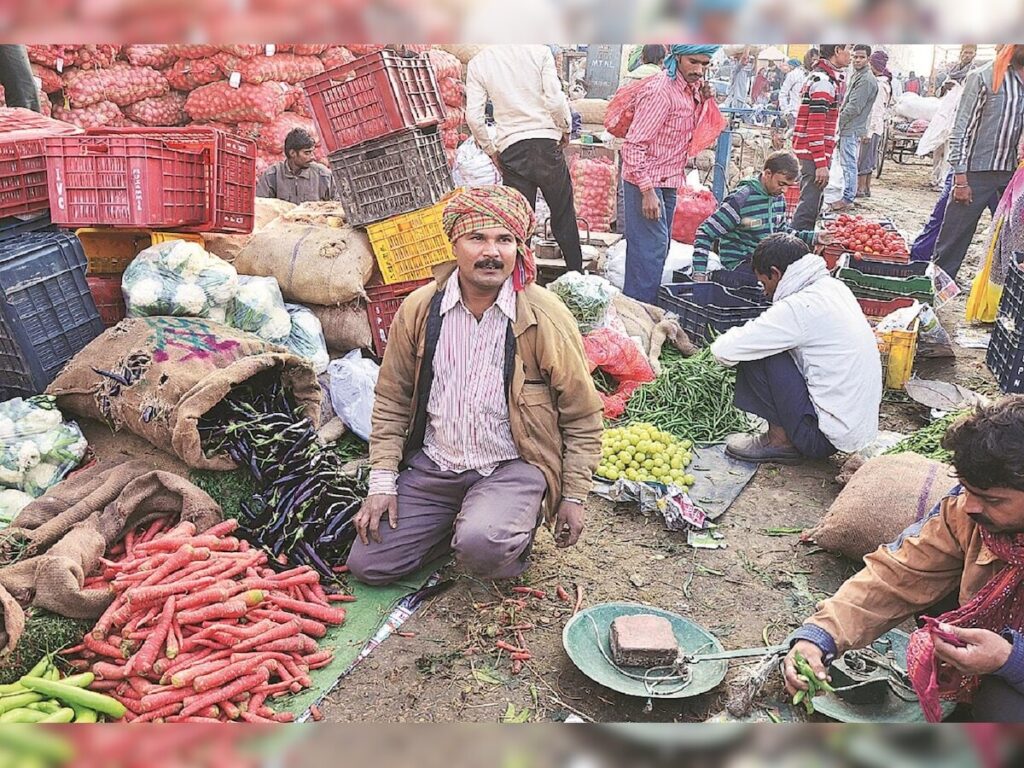NEW DELHI: India’s wholesale price index (WPI)-based inflation declined to 2.31 per cent in January from 2.37 per cent in December as the food prices came down due to the arrival of fresh harvests while fuel rates too remained under check, according to the government data released on Friday.
Data released by the Ministry of Commerce and Industry showed that inflation in food items declined sharply to 5.88 per cent in January from 8.47 per cent in December, led by deceleration in the prices of vegetables (8.35 per cent), paddy (6.22 per cent) and protein rich items like eggs, meat & fish (3.56 per cent).
While the prices of potato (74.28 per cent) decelerated, it still remained quite high.
On the other hand, prices of food items like cereals (7.33 per cent), wheat (9.75 per cent), pulses (5.08 per cent), onion (28.33 per cent) and milk (2.69 per cent) accelerated during the month.
Rajani Sinha, chief economist, CARE Ratings said that the arrival of fresh harvests has led to a seasonal correction in food prices and the outlook for agriculture remains positive, with robust kharif output and good progress of rabi sowing.
“The food prices are expected to continue to ease in the coming months driven by seasonal correction in prices,” she said.
The fuel and power category witnessed deflation (-2.78 per cent) in January as well. While prices for cooking gas decelerated (2.23 per cent), prices of the petrol (-3.64 per cent) and high speed diesel (-3.61 per cent) remained in contraction during the month.
In the manufactured products category, which has a weightage of 64.2 per cent in the index, inflation increased slightly to 2.51 per cent in January from 2.14 per cent in December.
The inflation was led by acceleration in the prices of manufactured goods categories like food products (10.42 per cent), vegetables and animal fats (33.1 per cent), wearing apparel (2.12 per cent), leather (2.27 per cent), pharmaceuticals (1.4 per cent), rubber products (1.65 per cent) among others.
Rahul Agrawal, senior economist, ICRA Ratings said that after rising sharply in January 2025, global commodity prices have inched up further in February so far, amid growing uncertainty around the impact of the US protectionist trade policies.
“This would exert an upward pressure on the WPI non-food component. Besides, the USD/INR pair has depreciated in February, which would likely push up the landed cost of imports in the ongoing month,” he said.
Echoing similar views, Sinha added that it is crucial to monitor geopolitical developments and global trade uncertainties closely, as these could significantly influence global commodity markets and supply chains.
On Wednesday, government data also showed that the country’s retail inflation rate, based on the consumer price index (CPI) fell to a five-month low of 4.31 per cent in January from 5.22 per cent in December, driven by slowdown in food prices.
Earlier this month, the Reserve Bank of India’s monetary policy committee slashed the policy repo rate by 25 basis points (bps) to 6.25 per cent for the first time in nearly five years.
Source: Business Standard

 British Marxist Sociologist Michael Burawoy Has Left A Rich Legacy
British Marxist Sociologist Michael Burawoy Has Left A Rich Legacy 